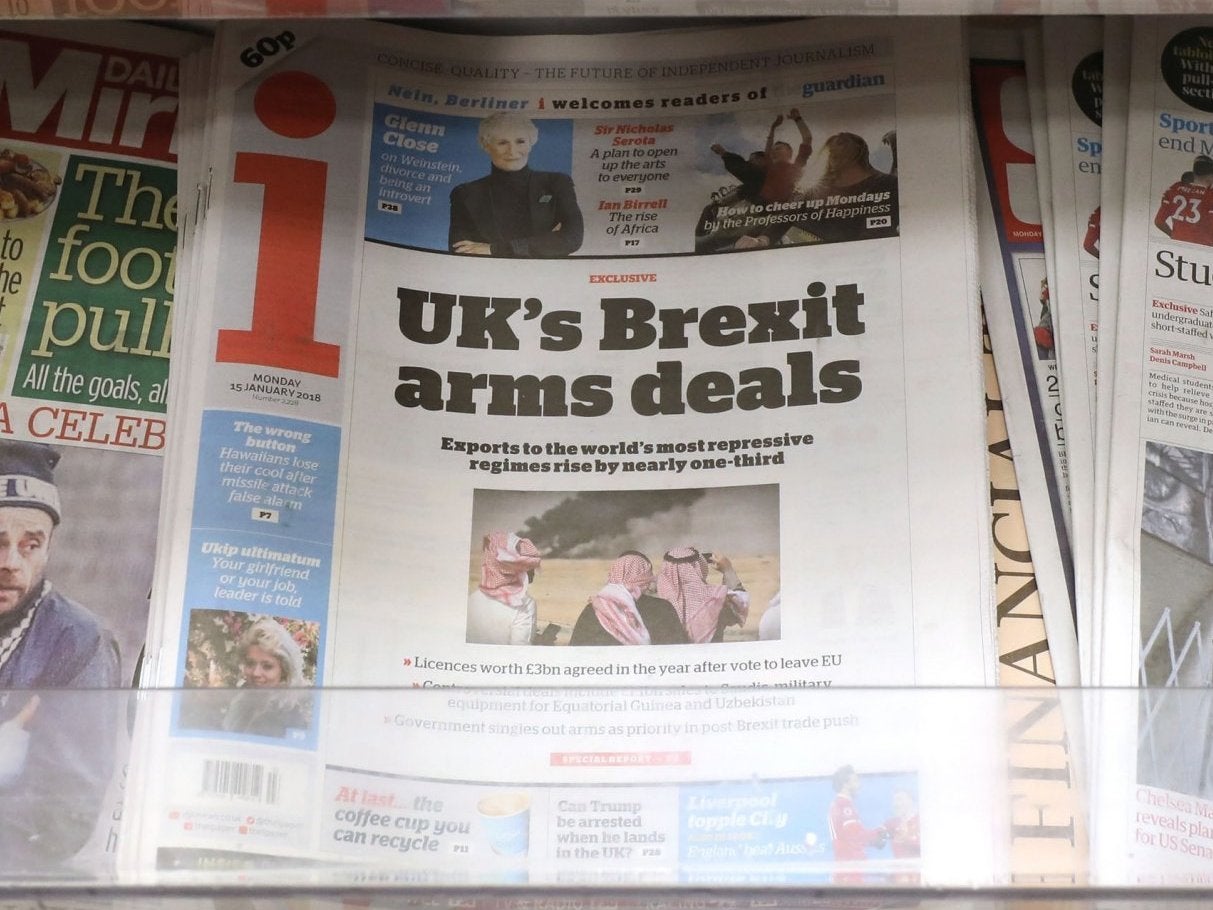Johnston Press: Owner of the i, Scotsman and Yorkshire Post plans to file for administration
Publisher had recently been looking at ways to refinance £220m of debt that became repayable in June

Your support helps us to tell the story
From reproductive rights to climate change to Big Tech, The Independent is on the ground when the story is developing. Whether it's investigating the financials of Elon Musk's pro-Trump PAC or producing our latest documentary, 'The A Word', which shines a light on the American women fighting for reproductive rights, we know how important it is to parse out the facts from the messaging.
At such a critical moment in US history, we need reporters on the ground. Your donation allows us to keep sending journalists to speak to both sides of the story.
The Independent is trusted by Americans across the entire political spectrum. And unlike many other quality news outlets, we choose not to lock Americans out of our reporting and analysis with paywalls. We believe quality journalism should be available to everyone, paid for by those who can afford it.
Your support makes all the difference.Johnston Press, which owns newspapers including the i, The Scotsman and The Yorkshire Post, is preparing to enter into administration, the company has confirmed in a statement.
The publisher had recently been looking at ways to refinance £220m of debt that became repayable in June this year.
At its most recent trading update, the firm reported a hit to revenues, mostly due to changes in Google and Facebook algorithms.
In a statement, the publisher said “following considerable interest in the formal sales process”, and it was decided that none of the offers received delivered sufficient value.
It added: “The board has concluded that there is no longer any value in the ordinary shares of the company.”
In an email to staff, the company’s chief executive moved to reassure staff about a ”brighter future”.
David King said the publisher will apply for court approval to be sold to a newly-incorporated group of companies controlled by creditors.
It informed staff they would continue to be paid and should turn up to work as normal, with their contracts to be transferred to the new company.
Mr King is set to stay on as chief executive and said “operations will continue uninterrupted”, with newspapers and websites being published as usual.
He said: “This has not been an easy decision for the board. However, having explored a range of other options, this is the best available course of action and it is one that offers a chance for a brighter future for our business.”
Speculation that the firm might be sold had been growing since it announced the strategic review in March 2017.
In August 2018, the company’s share price spiked, surging by as much as 70 per cent in afternoon trading amid rumours that a mystery buyer was quietly snapping up more stock.
But in confirming the move towards administration, the publisher said all options to refinance or restructure the debt had been explored and that “it had not been possible to find a solution acceptable to our financial stakeholders”.
The statement said: “The board has concluded that it is necessary for the company and its principal subsidiaries to be placed into administration.”
Johnston said it has also requested the immediate suspension of shares trading on the London Stock Exchange, with a cancellation of trading due to follow on 20 November.
The company is due to apply for court approval to form a newly-incorporated group of companies controlled by creditors.
“This is the best remaining option available as it will preserve the jobs of the group’s employees and ensure that the group’s businesses will be carried on as normal,” the statement added. “The group hopes that this transfer will be completed within the next 24 hours.”
The publisher said it has more than 200 titles in print and online.
Following the announcement health secretary Matt Hancock, formerly a culture secretary, tweeted to say the news was “very concerning”.
“Makes stark reality of the intense pressure on the press,” he added.
Shadow culture secretary and deputy Labour leader, Tom Watson, also tweeted his concern about the “late Friday announcement”, adding that he “will be reaching out to unions and staff over the weekend”.
In a second tweet he said: “Johnston Press going into administration is a grim day for local newspapers and another deeply worrying one for local democracy.”
Leeds North West Labour MP, Alex Sobel, tweeted to say he was sad that Johnston, which owns The Yorkshire Post and the Yorkshire Evening Post, was going into administration.
“Local papers raising local and regional issues are vital for our democracy,” he added.
Press Association
Join our commenting forum
Join thought-provoking conversations, follow other Independent readers and see their replies
Comments